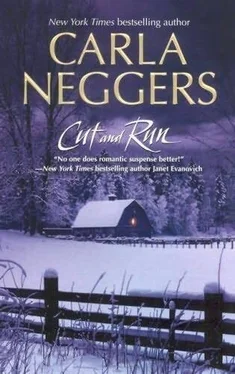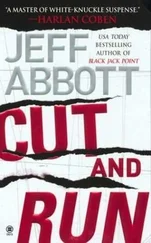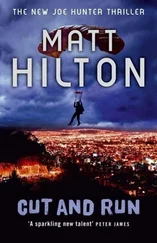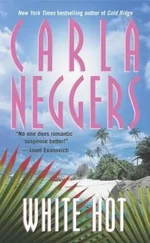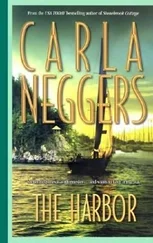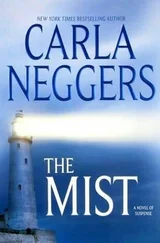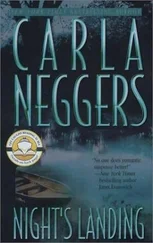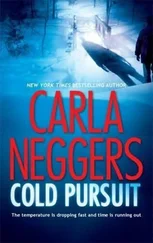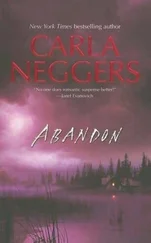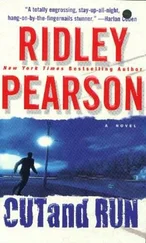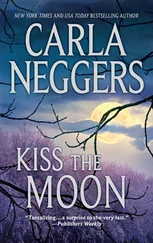Then he got sick of it all or ran out of things to say-something. He’d quit caring about what had brought on the change of heart. He’d resigned from the Post, done nothing for a while, then, still with a reputation left, showed up at the Gazette to do a tabloid’s version of investigative reporting.
He sipped some coffee and admitted he felt better. Nothing like a newsroom to help him forget a long Sunday of nightmares that had haunted him, awake and asleep. He called them nightmares, although they weren’t. They were memories.
“Asshole!”
Alice Feldon stomped over to his desk, the front page of the New York Times crushed in one hand, her glasses down on the end of her big nose. “Goddamn you,” she said. “I stick my neck out for you, I call in a few chips to get you a ticket to a sold-out concert at Lincoln Center, I trust you, you son of a bitch, and how the hell do you repay me?”
“Relax, Feldie. It was a dead end, all right? No story.”
“Bullshit.” She flung the Times at him. “There, read. A woman slipped and fell outside Lincoln Center after the concert Saturday night. Died. Her body wasn’t discovered until yesterday afternoon.”
“Great story, Feldie. I’ll get right on it.”
“I don’t need your sarcasm. The woman’s name was Rachel Stein. Mean anything to you?”
“No.”
“She was with one Senator Samuel Ryder at the concert-your old pal.”
Matthew rubbed his forehead. “Jesus Christ.”
The story started on the lower half of the front page. Rachel Stein had been a prominent Hollywood agent; she had recently retired to Palm Beach. A quote from Ryder’s office said she had become a prominent supporter of the senator’s and he was deeply grieved by her death.
“This guy Weasel-he a friend of Ryder’s, too? Is that why you were at Lincoln Center, because Ryder was there? They say Stein’s death was accidental. You have any other ideas?”
Stark let Feldie rant. The world’s largest uncut diamond, Ryder’s troubles, Weasel’s dumb urge to help him. Now this.
“Look, Stark, goddamnit, I don’t feel sorry for you. You could quit this job and still make more money on royalties and interest than I do putting in a sixty-hour week. I could fire you, you’d make out fine, which is probably the biggest reason I don’t.” She pushed her glasses up on top of her head. “People used to say you gave a damn.”
No one talked to him like that except Alice Feldon. No one else dared. Matthew liked it that he didn’t scare her. “Maybe I never did.”
“I don’t believe that.” Her voice had softened, and she let out a heavy sigh. “Was this Otis Raymond character in Vietnam with you and Ryder?”
“Weaze is a burned-out Vietnam vet. Country’s bored with them, Feldie. About all I get from him is bullshit. If there’s a story in this, you’ll get it. I promise.”
“All right, Stark. You’re a journalist. Follow up.”
Muttering that she ought to give up on the lazy shit, Alice stalked back to her desk. Matthew drank some more coffee and read the piece on Rachel Stein’s death. She could easily have slipped. He remembered how tiny she was, how wrinkled and old-looking, even if the article said she was only sixty-five. She wasn’t used to snow and ice. So maybe she slipped and maybe she didn’t-did it make any difference? He went back to the beginning and reread the piece.
And there it was. Rachel Stein had emigrated from Amsterdam in 1945, having spent the last months of the war in a Nazi concentration camp. She was a Dutch Jew.
A Dutch Jew.
And the man Ryder was supposed to have met, Hendrik de Geer, was also Dutch.
Stark looked up at the LZ poster, not seeing it. Something else was stirring around in his head, but he couldn’t pin it down. He pulled out the program he’d saved from the concert, just in case Feldie wanted proof he’d attended, just in case he felt like cutting out the picture of Juliana Fall and sticking it on his partition.
He flipped to Ms. Pianist’s bio. There was the usual garbage. First and only student of Eric Shuji Shizumi, who didn’t want her to go to Vermont. Attended Juilliard, which stood to reason. Career launched after winning various prestigious piano competitions, including the Levenritt at Carnegie Hall, which Stark was glad he hadn’t had to sit through. The bio neglected to mention she was beautiful. He remembered the way her dress had clung to her. Hell, yes, she was beautiful. He skipped the stuff about her technique and conception of the Beethoven concerto and dropped down to the last personal items. She lived in New York, where she’d been born and raised, the daughter of Wall Street banker Adrian Fall and Catharina Peperkamp Fall, owner of Catharina’s Bake Shop on upper Madison Avenue-and a Dutch immigrant.
And what a handy coincidence that was. Feldie was right: he was a journalist. As such, he didn’t believe in coincidences.
A year ago, before J.J. Pepper, Juliana had bought an aquarium and put it up behind her concert grand piano, near the French doors that separated her dining room and huge living room overlooking Central Park. She’d filled the aquarium with water and added goldfish, six of them. Their names were Figaro, Cosima (after Wagner’s wife), Puccini, Carmen, Bartók, and the Duke (after Duke Ellington; to Shuji he was Ludwig). They didn’t talk, and they weren’t much to look at, weren’t, in fact, any company at all, but they were something alive to have around during her long hours of isolation. She could turn around in her chair at the piano-she practiced far too many hours for her back to tolerate a bench-and have a nice chat with them, as she was doing now. They fit her itinerant lifestyle more easily than would a dog or cat. It was easy to get people to feed fish while she was away, but she had a feeling if they ever forgot, they’d just flush the bodies down the toilet and buy new ones for her. Would she ever know?
Shuji had won. She’d decided to postpone Vermont. Saturday night at the Club Aquarian had gone too well, been too much fun. She needed to work. She had to get J.J. Pepper out of her system. There was no time for decent practice on the road, and she needed to get back into it. If she did at least eight hours a day at the piano for the next two weeks, she’d be back in shape-like a runner. The real work of being a pianist, Shuji had said. He had a point, although she was still so irritated with him for ruining Vermont for her that she wasn’t about to tell him so. Once she’d established her schedule, she could spare a few days in Vermont without compromising her progress. Without guilt.
But she couldn’t just leap back into her old routines. Yesterday, after a meager three hours of practice, she’d ended up trotting off to the Metropolitan Museum of Art to see the Christmas tree.
Today she’d done a little better. She’d climbed out of bed at eight, just an hour later than she’d meant to, and had done ten minutes of stretching, although twenty would have been better. She should have gone jogging in the park if it was warm enough or jumped on her stationary bike. She’d jumped into the tub. Her “healthy breakfast” was two of her mother’s famous butter cookies and a pot of tea. A proper schedule would put her at her Steinway by nine, there to stay for eight to ten hours, with occasional breaks and time out for lunch and dinner. Today’s schedule had put her at her piano at eleven with lots of breaks.
It was just three o’clock, and so far she’d had four fish-talk breaks. But she refused to be hard on herself. All she needed were a couple of days. She’d be back to her old self, as demanding and absorbed in her work as ever.
“What do you say, Duke, back to the Chopin?”
Читать дальше
Конец ознакомительного отрывка
Купить книгу
